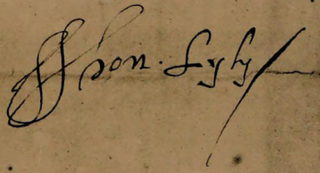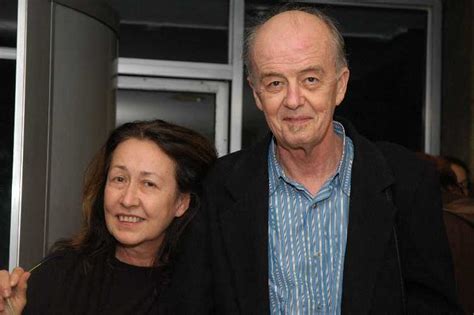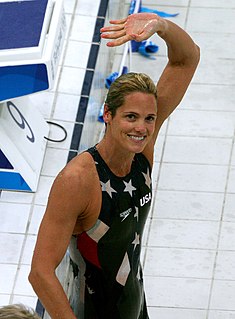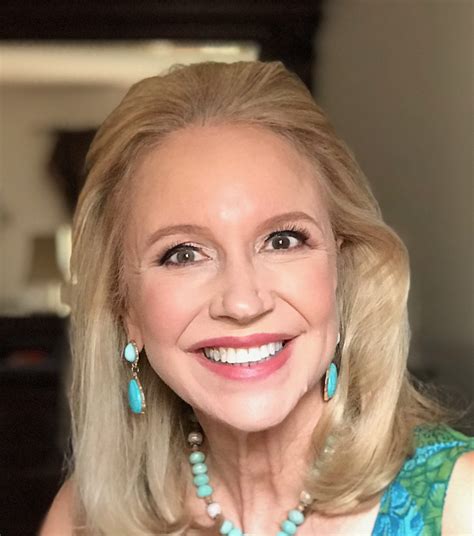Top 143 Coral Quotes & Sayings - Page 3
Explore popular Coral quotes.
Last updated on April 16, 2025.
Cupid and my Campaspe play'd
At cards for kisses - Cupid paid:
He stakes his quiver, bow, and arrows,
His mother's doves, and team of sparrows;
Loses them too; then down he throws
The coral of his lips, the rose
Growing one's cheek (but none knows how);
With these, the crystal of his brow,
And then the dimple of his chin:
All these did my Campaspe win.
At last he set her both his eyes -
She won, and Cupid blind did rise.
O Love! has she done this for thee?
What shall, alas! become of me?
Fresh beauty opens one's eyes wherever it is really seen, but the very abundance and completeness of the common beauty that besets our steps prevents its being absorbed and appreciated. It is a good thing, therefore, to make short excursions now and then to the bottom of the sea among dulse and coral, or up among the clouds on mountain-tops, or in balloons, or even to creep like worms into dark holes and caverns underground, not only to learn something of what is going on in those out-of-the-way places, but to see better what the sun sees on our return to common every-day beauty.
I wish I could tell you about the South Pacific. The way it actually was. The endless ocean. The infinite specks of coral we called islands. Coconut palms nodding gracefully toward the ocean. Reefs upon which waves broke into spray, and inner lagoons, lovely beyond description. I wish I could tell you about the sweating jungle, the full moon rising behind the volcanoes, and the waiting. The waiting. The timeless, repetitive waiting.
Night of Sleepless Love The night above. We two. Full moon. I started to weep, you laughed. Your scorn was a god, my laments moments and doves in a chain. The night below. We two. Crystal of pain. You wept over great distances. My ache was a clutch of agonies over your sickly heart of sand. Dawn married us on the bed, our mouths to the frozen spout of unstaunched blood. The sun came through the shuttered balcony and the coral of life opened its branches over my shrouded heart.
After Nicholas hung up the phone, he watched his mother carry buckets and garden tools across the couch grass toward a bed that would, come spring, be brightly ablaze as tropical coral with colorful arctotis, impatiens, and petunias. Katherine dug with hard chopping strokes, pulling out wandering jew and oxalis, tossing the uprooted weeds into a black pot beside her. The garden will be beautiful, he thought. But how do the weeds feel about it? Sacrifices must be made.
Do you see the Field of Mars, where I walked next to my bride in her white wedding dress, with red sandals in her hands, when we were kids?” “I see it well.” “We spent all our days afraid it was too good to be true, Tatiana,” said Alexander. “We were always afraid all we had was a borrowed five minutes from now.” Her hands went on his face. “That’s all any of us ever has, my love,” she said. “And it all flies by.” “Yes,” he said, looking at her, at the desert, covered coral and yellow with golden eye and globe mallow. “But what a five minutes it’s been.
Jane was wearing a charcoal shift dress. The black dipped into a love V accented with a large black chiffon bow. A layer of delicate black lace peeked out from the bottom of her dress. Her long blond hair was pulled back tightly into a straight ironed ponytail. Her makeup was simple: coral blush on her cheeks and gunmetal shadow brushed under her blue eyes.
A billion homo sapiens are added every 11 years to the planet. The hypertrophy of a single species pushes other life-forms out of bed and into extinction. The decline of biological diversity is real and severe. The alarming loss of soil fertility, forest cover, and coral reef viability and the release of fossilized CO2 that nature put away 300 million years ago in its march toward greater diversity - all these "losses" and many others are the result of one life-form annihilating other life-forms in its immoral confusion of "dominion" with "domination."
The little fishing boat anchors right off the shore of Gili Meno. There are no docks here on this island. You have to roll up your pants, jump off the boat and wade in through the surf on your own power. There's absolutely no way to do this without getting soaking wet or even banged up on the coral, but it's worth all the trouble because the beach here is so beautiful, so special
I think I need to spend some time with safari but what arrests my attention are salient, sadomasochism, saccadic, and salad days. I think I will go learn more about coral only to learn a lot more about corollary and counterturn and coffin nail. I go from magnificence to means to marquee to maniac to distyle, ductile, hindsight, shell game, veronica, yardstick, ball field, magpie, variegated, and close shave.
But technology is the real skin of our species. Humanity, correctly seen in the context of the last five hundred years, is an extruder of technological material. We take in matter that has a low degree of organization; we put it through mental filters, and we extrude jewelry, gospels, space shuttles. This is what we do. We are like coral animals embedded in a technological reef of extruded psychic objects. All our tool making implies our belief in an ultimate tool. That tool is the flying saucer, or the soul, exteriorized in three-dimensional space.
At any rate, nothing was more characteristic of him [Walter Benjamin] in the thirties than the little notebooks with black covers which he always carried with him and in which he tirelessly entered in the form of quotations what daily living and reading netted him in the way of "pearls" and "coral." On occasion he read from them aloud, showed them around like items from a choice and precious collection.
The really valuable thing about documenting coral bleaching is that it is this straight, very direct visual indicator of how hot the oceans are getting. If the temperature of the water passes a certain threshold, the corals turn white. It's that simple. There's nothing natural about the cycle that's going on right now. In 2016, we lost 29 percent of the Great Barrier Reef. So 29 percent of the Great Barrier Reef died in a single year, because the water was hot.
I roamed the countryside searching for the answers to things I did not understand. Why shells existed on the tops of mountains along with the imprints of coral and plant and seaweed usually found in the sea. Why the thunder lasts a longer time than that which causes it and why immediately on its creation the lightening becomes visible to the eye while thunder requires time to travel. How the various circles of water form around the spot which has been struck by a stone and why a bird sustains itself in the air. These questions and other strange phenomena engaged my thought throughout my life.
The Reproductions of the living Ens
From sires to sons, unknown to sex, commence...
Unknown to sex the pregnant oyster swells,
And coral-insects build their radiate shells...
Birth after birth the line unchanging runs,
And fathers live transmitted in their sons;
Each passing year beholds the unvarying kinds,
The same their manners, and the same their minds.
The theory which I would offer, is simply, that as the land with the attached reefs subsides very gradually from the action of subterranean causes, the coral-building polypi soon raise again their solid masses to the level of the water: but not so with the land; each inch lost is irreclaimably gone; as the whole gradually sinks, the water gains foot by foot on the shore, till the last and highest peak is finally submerged.
For nine miles along a submerged ridge, the corals rise in lumpy hillocks that spread out 100 yards or more, resembling heaped scoops of rainbow sherbet and Neapolitan ice cream. The mounds, some 100 feet tall, sprout delicate treelike gorgonians that sift currents for a plankton meal. Fish, worms and other creatures dart or crawl in every crevice. This description could apply to thousands of coral reefs in shallow, sun-streaked tropical waters from Australia to the Bahamas. But this is the Sula Ridge, 1,000 feet down in frigid darkness on the continental shelf 100 miles off Norway's coast.
Michael wasn't on the pool deck, which was hard for me. None of my old Coral Springs teammates were around. Still, that old plane of cement felt like home. I folded my clothes and put them on the bench. I placed my water bottle under my starting block, and I dove in. Once again, I felt that ultimate state of transition, my feet no longer on the ground, my hands not yet in the water.
By 2050, at bio-extinction's current rate, between 25 per cent and 50 per cent of all species will have disappeared or be too few in numbers to survive. There'll be a few over-visited parks, the coral reefs will be beaten up, grasslands overgrazed. Vast areas of the tropics that have lost their forests will have the same damn weeds, bushes and scrawny eucalyptus trees so that you don't know if you're in Africa or the Americas.
A scientist with a poet's command of language, Cristina Eisenberg writes with precision and passion . . . takes her reader on a breathtaking, sometimes heartbreaking tour of the planet from the Gulf of Maine to the Amazonian rain forests, the tropical coral reefs to old growth forests of the Northwest as well as rivers, lakes, and wetlands. I found the wealth of information not only accessible but riveting . . . Eisenberg's powerful, beautifully written book . . . has the potential to open many people's eyes, minds, and hearts.
How not to imagine the tumors ripening beneath his skin, flesh I have kissed, stroked with my fingertips, pressed my belly and breasts against, some nights so hard I thought I could enter him, open his back at the spine like a door or a curtain and slip in like a small fish between his ribs, nudge the coral of his brains with my lips, brushing over the blue coil of his bowels with the fluted silk of my tail.
We've lost half the summer sea ice in the Arctic. We've wiped out an enormous percentage of the world's coral reefs. We see huge changes in the planet's hydrology already, the cycles of drought and flood both amped up because warm air holds more water vapor than cold. These things are happening with a one-degree increase and going to two degrees won't be twice as bad, the increase in damage won't be linear, it most certainly will be exponential. So it was precisely the wrong moment to elect Trump.






















